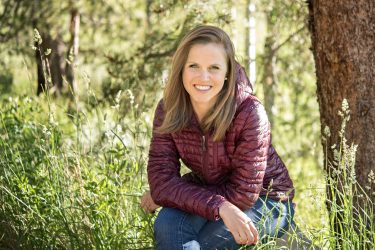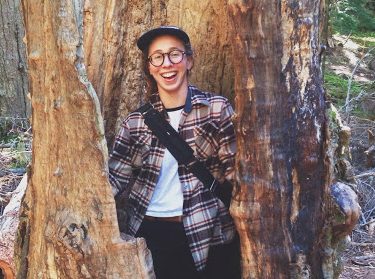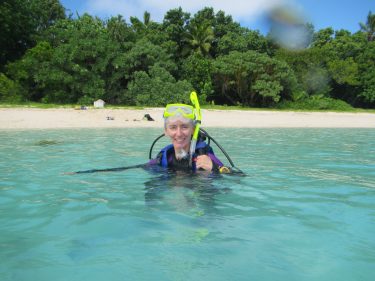UW Environment is pleased to announce that School of Environmental and Forest Sciences’ students Taylor Ganz and Lila Westreich and the School of Aquatic and Fishery Sciences’ Marta Gomez-Buckley are recipients of the 2018 Hall Conservation Genetics Research Fund. The fund is made possible by a generous gift from the Benjamin and Margaret Hall Charitable Lead Trust.

Taylor Ganz
Advisor: Laura Prugh
Using forensic DNA analysis to identify the species and individual predator at white-tailed deer (Odocoileus virginianus), mule deer (Odocoileus virginianus) and elk (Cervus elaphus) kill sites, the project will quantify the degree of specialization within predators, applying recently developed techniques in wildlife forensics to inform the conservation and management of Washington’s wildlife.
Taylor’s project is called “Wildlife Whodunit: Forensic Identification of Predators to Improve Wildlife Conservation.”

Lila Westreich
Advisor: Patrick Tobin
Utilizing Sanger sequencing technologies to establish a native plant reference library, the project will sequence native plant species that are not yet sequenced. This will expand the understanding of native plant genetic diversity in the region, as well as provide insight as to the role of native and non-native plant pollen on native bee health, which can be used to improve conservation efforts for native bees. The project will subsequently be used to identify plant species visited by the native orchard mason bee in the Seattle region.
Lila’s project is called “Conservation of Native Plant Genetic Variation to Understand Native Bee Foraging Behavior.”

Marta Gomez-Buckley
Advisor: Luke Tornabene
What can environmental DNA (eDNA) from samples collected in the vicinity of coral reefs tell us about the diversity and community composition of cryptobenthic coral reef fishes – a diverse and ecologically sensitive indicator community for reef degradation and habitat loss? Can the development of protocols that yield accurate data from the analyses of eDNA samples from coral reefs make biodiversity and conservation research on this imperiled ecosystem more cost- and time-effective?
Marta’s project is called “Assessing biodiversity, community ecology, and reef connectivity of cryptic coral reef fishes in two central south Pacific archipelagos.”
Hall Conservation Genetics Research Fund
The Hall Conservation Genetics Research Fund was established specifically for College of the Environment students working in the field of conservation genetics. Students and faculty advisors are asked to demonstrate how the requested funding will be used to develop a new student-directed project, or support a student-directed extension of a project in which the student is already engaged. The project must be entirely accomplished within the funding year, and a scholarly research product (e.g., manuscript submitted to peer-reviewed journal, presentation at a national or international scientific society conference) must result from the work.
Proposals are limited to a maximum of $6,000. The proposals were reviewed by faculty scientists who are experts in conservation genetics, and by faculty who are not experts in the field but who are natural scientists. Reviewers scored each proposal on:
- Impact, innovation and significance to the field
- Impact on the thesis or dissertation work of the student
- Likelihood of successful completion
About the Funders
During his 38 years in genetics, UW Professor Emeritus of Genome Sciences and Biology Benjamin (“Ben”) Hall made many key discoveries, including the patented invention “Expression of Polypeptides in Yeast” which the UW-licensed for the production of vaccines against Hepatitis B Virus and Human Pappiloma Virus, as well as Human Insulin and other recombinant proteins. Hall’s more recent research has focused on understanding the speciation and evolution in the genus Rhododendron. Margaret Hall received her Ph.D. in History from the UW, doing important thesis work on women in academia, and subsequently devoting herself to teaching.
More about the Hall Conservation Genetics Research Award »
